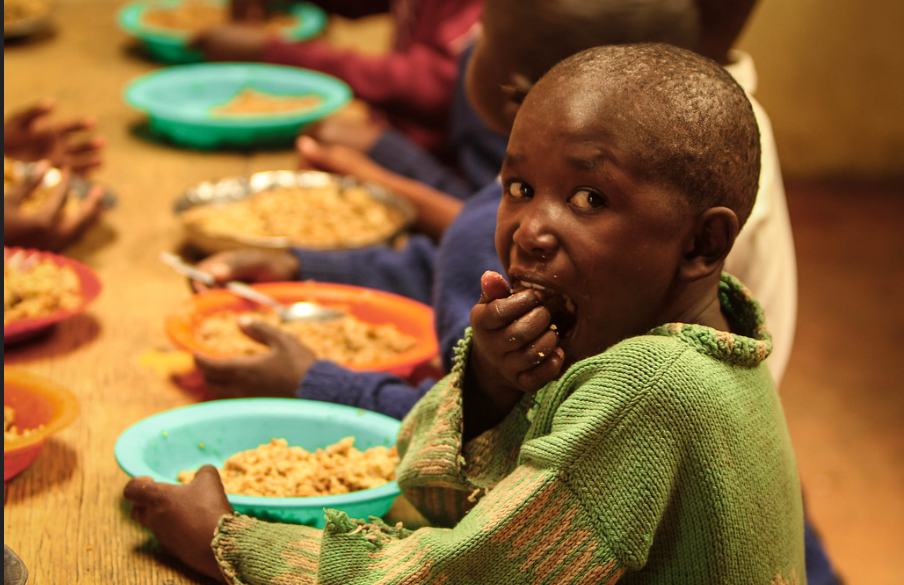UN Agencies Warn of Catastrophic Hunger Crisis in Sudan Amid Ongoing Conflict
The agencies have mobilized a large-scale humanitarian response both within Sudan and in neighboring countries, where over 2 million refugees have sought safety.

Alarming new food security projections for Sudan reveal a devastating hunger catastrophe on a scale not seen since the Darfur crisis in the early 2000s, according to the heads of three United Nations agencies. The Food and Agriculture Organization (FAO), UN Children’s Fund (UNICEF), and the UN World Food Programme (WFP) warn of a rapid deterioration in conditions for the people of Sudan, particularly children, as food security is torn apart by more than a year of war. The agencies have mobilized a large-scale humanitarian response both within Sudan and in neighboring countries, where over 2 million refugees have sought safety.
An immediate ceasefire, renewed international efforts – both diplomatic and financial – and unhindered, sustained humanitarian access are urgently needed to expand the humanitarian response and deliver aid at the necessary scale.
The rapid deterioration in food security has left 755,000 people in catastrophic conditions (IPC Phase 5) with a risk of famine in 14 areas, according to the latest data from the Integrated Phase Classification (IPC). The worst conditions are in areas hardest hit by fighting and where displaced people have gathered. A total of 25.6 million people face high levels of acute hunger (IPC Phase 3+), meaning half of Sudan’s war-battered population struggles daily to feed themselves and their families.
This marks the first time catastrophic (IPC Phase 5) conditions have been confirmed in Sudan since the IPC's inception in 2004. Unlike the Darfur crisis, the current crisis spans the entire country, with catastrophic hunger levels even reaching the capital Khartoum and Gezira State, once Sudan’s breadbasket.
The latest data shows a stark deterioration from the last projection in December 2023, which reported 17.7 million people facing acute hunger (IPC Phase 3+), including nearly 5 million in emergency levels (IPC Phase 4). Currently, 8.5 million people are projected to be in emergency levels of hunger (IPC Phase 4).
“The new IPC analysis revealed a deepening and rapid deterioration of the food security situation in Sudan with millions of lives at risk,” said FAO Director-General QU Dongyu. “We are delivering life-saving seeds for the main planting season, but we urgently require USD 60 million to meet unfunded parts of our Famine Prevention Plan. We must act collectively, at scale, with unimpeded access, for the sake of millions of innocent lives hanging in the balance.”
“WFP’s team in Sudan is working day and night in perilous conditions to deliver lifesaving assistance, but time is fast running out to prevent famine,” said WFP Executive Director Cindy McCain. “We urgently need a massive expansion of humanitarian access and funding to scale up our relief operations and halt Sudan’s slide into a humanitarian catastrophe that threatens to destabilize the wider region.”
“The latest snapshot illustrates the devastating impact the conflict in Sudan is having on the country's children," said UNICEF Executive Director Catherine Russell. "Hunger and malnutrition are spreading at alarming rates. Without concerted international action and funding, the situation could spiral out of control. Any delay in unfettered access to vulnerable populations will be measured in the loss of children's lives."
FAO, UNICEF, and WFP are leading multi-sectoral famine prevention efforts across Sudan:
-
WFP has reached over 3 million displaced and vulnerable people in Sudan so far this year and is working to reach an additional 5 million by year-end. WFP is expanding access and opening new humanitarian corridors from neighboring countries and across frontlines, delivering food and nutrition supplies for around half a million people in the Darfur region via convoys from Chad. More convoys for around 250,000 people are planned in the coming weeks.
-
FAO is preparing to support over 1.8 million farming and pastoral households, equivalent to 9 million people, to resume livelihood activities and produce food locally. FAO has purchased almost 8,000 tons of cereal seeds and will reach over 870,000 farming households across Sudan.
-
Since the conflict started in April 2023, UNICEF has reached close to 5.5 million children with nutritional screening and more than 322,000 children suffering from severe acute malnutrition with lifesaving treatment. UNICEF is scaling up multi-sectoral response efforts, providing access to safe water for over 5 million people, vaccinating over half a million children against measles, and offering cash assistance to over 350,000 pregnant and lactating women and their families.
The UN agencies emphasize the urgent need for immediate and sustained action to avert a full-scale humanitarian catastrophe in Sudan.
- READ MORE ON:
- Cindy McCain
- Sudan
- Darfur
- World Food Programme










